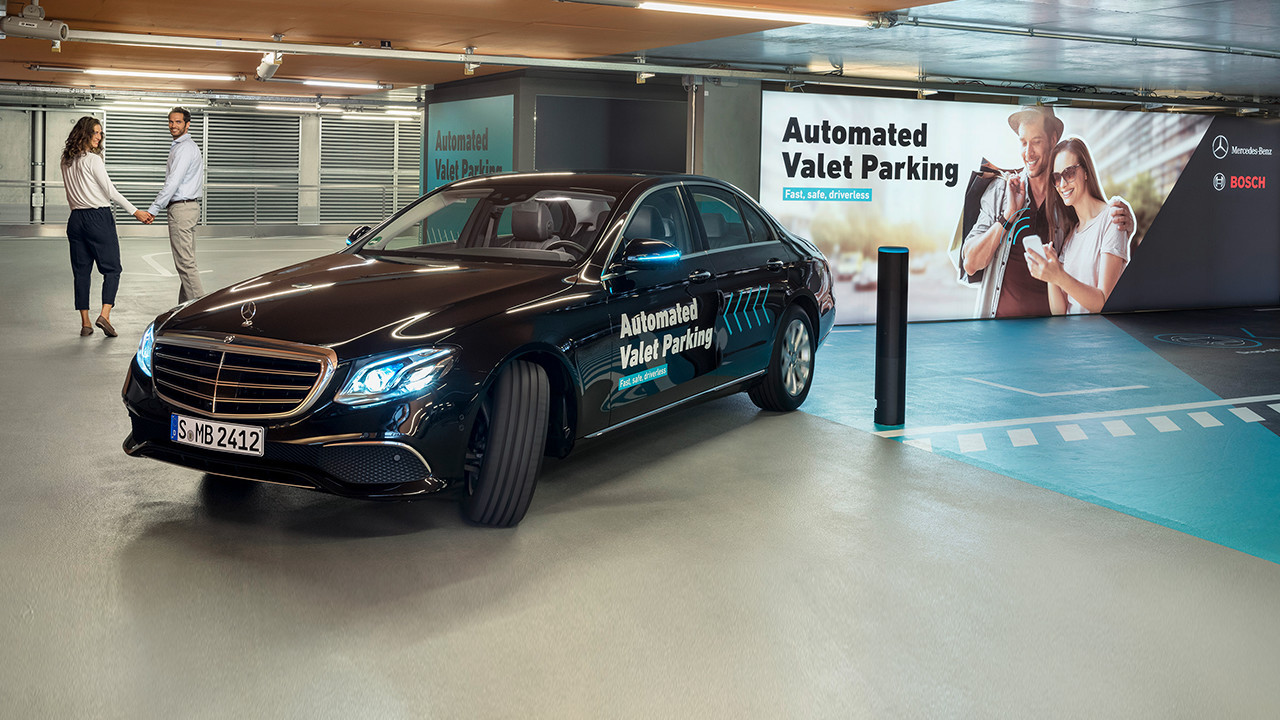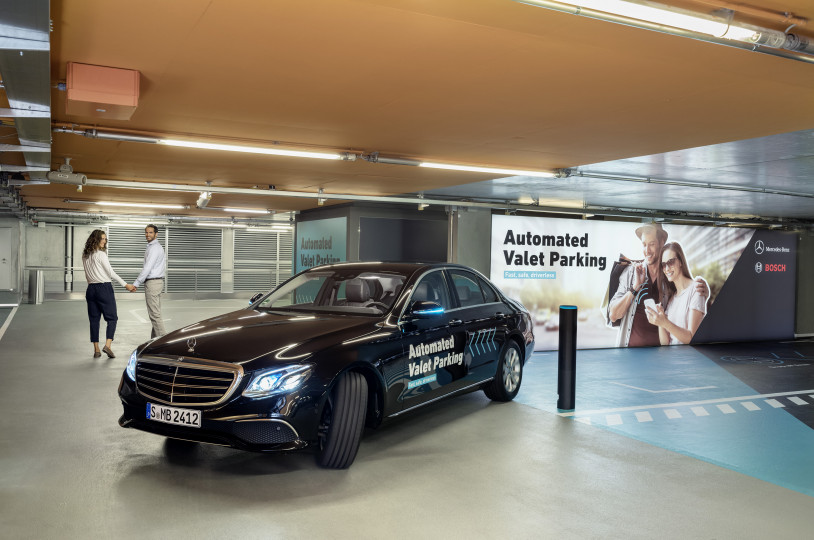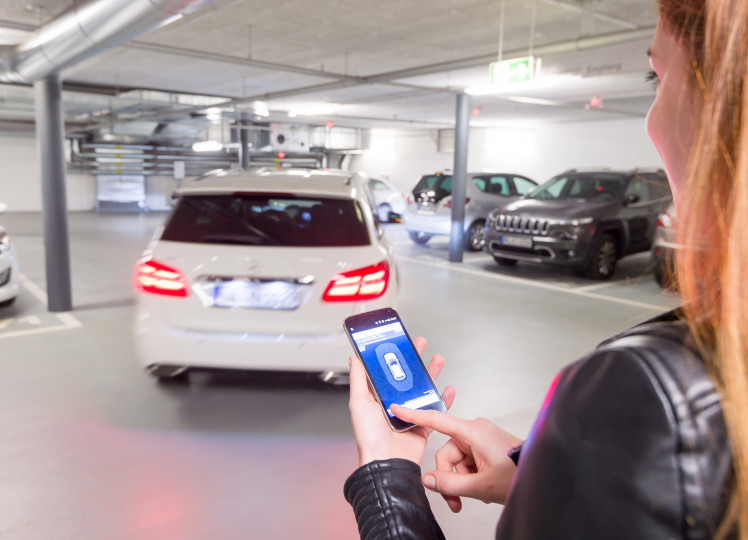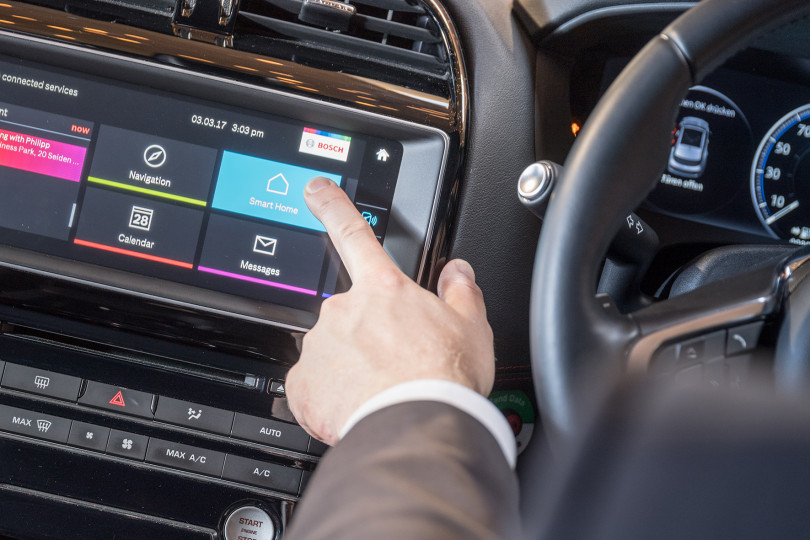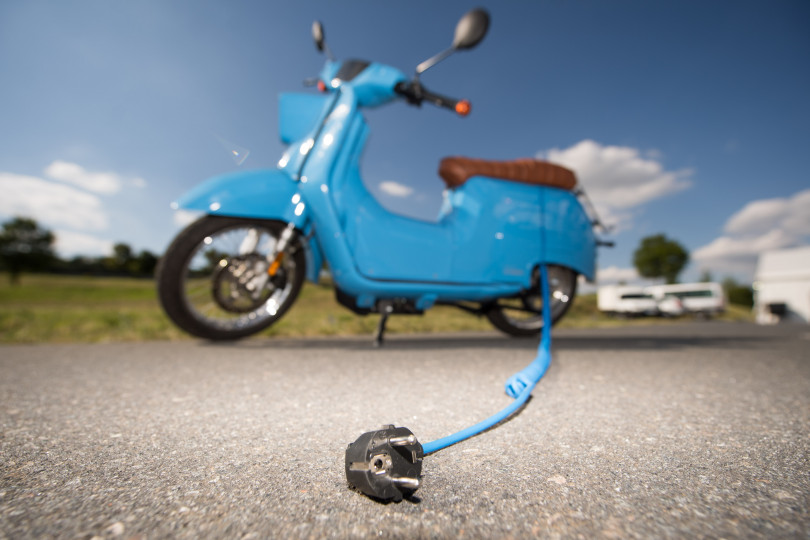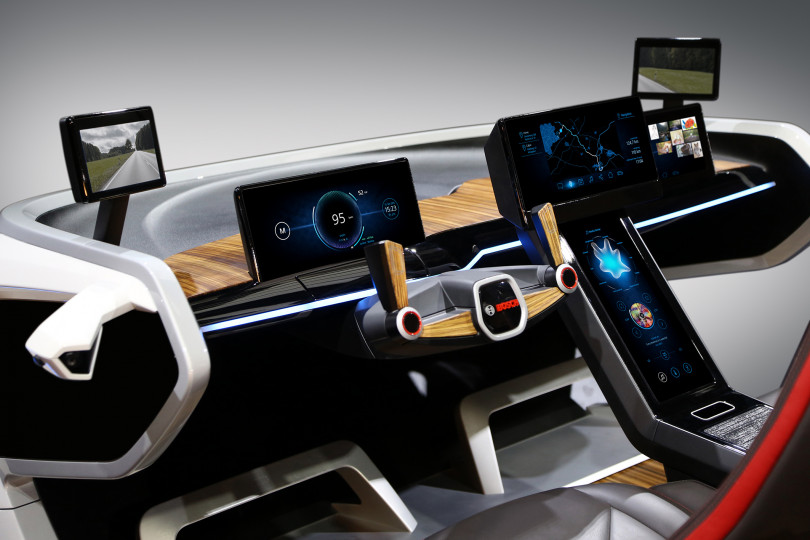Stuttgart and Frankfurt, Germany – In the transformation of mobility, Bosch is a driving force. With solutions for the road traffic of the future, Bosch is already growing twice as fast as the market. In 2017, the sales of the Mobility Solutions business sector are expected to increase by 7 percent to some 47 billion euros. Over the same period, global vehicle production will grow just 2.8 percent. “Our business with the automotive industry continues to grow, and will remain strong. This stands us in good stead for the mobility of the future,” says Dr. Volkmar Denner, chairman of the Bosch board of management. The business with driver assistance systems is growing especially strongly at present. These systems are the forerunners of automated driving. Market growth here is 25 percent, and at Bosch it is even higher. As early as 2019, the supplier of technology and services will generate sales of two billion euros with driver assistance systems. By the end of the year, the number of R&D associates in the company’s Mobility Solutions business sector is set to rise nearly 10 percent, to 48,000 people. Technically speaking, the path to accident-free, stress-free, and emissions-free mobility will come through automation, electrification, and connectivity. “It’s not just a case of making better cars. We need new conceptions of mobility,” the Bosch CEO adds.
Bosch solutions for accident-free, stress-free, and emissions-free traffic
Whether traffic jams, accidents, air pollution, or climate change – Bosch already has solutions and services to deal with the current and future challenges of road traffic. “If we want to remain mobile in the future, we have to change our mobility now,” Denner says. One important task right now is to improve air quality in our cities. Bosch wants to help do this, both by improving the combustion engine and by stepping up its efforts in the electromobility field. With a view to the current debate about driving bans and the future of combustion engines, Denner says: “For us, it’s not just the one or the other. We want to keep our technological options open, and not restrict ourselves to a single path.” When it comes to emissions and imissions from combustion engines, significant progress can be achieved with synthetic fuels. These are produced with the help of renewable energy, and can make combustion engines CO2-neutral. In addition, synthetic fuels can be designed to burn practically soot-free. In this way, the cost of exhaust-gas treatment can be reduced. “Synthetic fuels can be used with existing filling stations and, most importantly, with currently existing engines. Their positive effect is thus faster than if we completely renew the infrastructure and the vehicle fleet,” Denner says.
The market penetration of electromobility continues to gain speed. The new Bosch e-axle makes the electrical powertrain more efficient and cost-effective for automakers – and thus also for anyone who wants to drive electrically. For light electromobility applications, Bosch has developed a flexible and easily scalable 48-volt powertrain system based on components already tried and tested in production. Bosch already has a leading position in China, the world’s largest market for electromobility. In Europe, Bosch supplies the powertrain system for the continent’s largest electric-vehicle fleet, the German Post Office’s Streetscooters.
With driverless parking, Bosch is paving the way for autonomous driving
At Bosch, automated driving is also taking on increasingly concrete shape. Together with Daimler, the world’s biggest automotive supplier will be launching highly automated fleets of shared vehicles on urban streets at the start of the next decade. This will improve traffic flows and contribute to greater safety. According to a global survey, half of all consumers would welcome such a self-driving car that relieves drivers of tasks and steers through traffic. Bosch has already taken the first steps toward autonomous driving: from the start of 2018, cars in the Mercedes-Benz Museum parking garage in Stuttgart will look for a parking space and park themselves, without a driver. This cuts out stress, and makes more efficient use of parking space – the same amount of space can accommodate up to 20 percent more vehicles. This automated valet parking is made possible by the intelligent parking-garage infrastructure supplied by Bosch. “Bosch can do more than cars. We are using the company’s entire range of technologies to put innovative mobility solutions into practice,” Denner says.
As easy as using a smartphone: software updates from the Bosch cloud
This approach also applies to connectivity. Over the next five years, the market for connected mobility will grow by almost 25 percent each year. This means that global sales will rise from 47 to 140 billion euros (source: PwC). Like no other company in the automotive industry, Bosch has the sensor, software, and services expertise that this requires. Even now, 1.5 million vehicles are connected using Bosch IoT software. Vehicle connectivity makes many mobility services possible. Cars will become personal assistants. “‘Just driving’ was yesterday. By connecting cars with smart homes and offices, we are turning them into a third living environment,” Denner says. Soon, connectivity will mean that vehicles handle repair-shop appointments digitally, using the new Bosch “software over the air” service. This will allow vehicle data to be updated securely and reliably, in the same way as smartphones are now. And it will be possible to download additional functions, such as a parking-space search engine. And by using software over the air, drivers will be able to reconfigure their cars in the future. At Bosch, connectivity extends far beyond the hood. With services such as Coup, the e-scooter sharing service that is now revolutionizing urban traffic in Berlin and Paris, Bosch is becoming a mobility services provider. Studies estimate that the mobility services market will grow by an annual 28 percent worldwide (source: McKinsey).
Mónika Hack
+36 70 510 5516
Mobility Solutions is the largest Bosch Group business sector. In 2016, its sales came to 43.9 billion euros, or 60 percent of total group sales. This makes the Bosch Group one of the leading automotive suppliers. The Mobility Solutions business sector combines the group’s expertise in three mobility domains – automation, electrification, and connectivity – and offers its customers integrated mobility solutions. Its main areas of activity are injection technology and powertrain peripherals for internal-combustion engines, diverse solutions for powertrain electrification, vehicle safety systems, driver-assistance and automated functions, technology for user-friendly infotainment as well as vehicle-to-vehicle and vehicle-to-infrastructure communication, repair-shop concepts, and technology and services for the automotive aftermarket. Bosch is synonymous with important automotive innovations, such as electronic engine management, the ESP® anti-skid system, and common-rail diesel technology.
The Bosch Group is a leading global supplier of technology and services. It employs roughly 390,000 associates worldwide (as of December 31, 2016). The company generated sales of 73.1 billion euros in 2016. Its operations are divided into four business sectors: Mobility Solutions, Industrial Technology, Consumer Goods, and Energy and Building Technology. As a leading IoT company, Bosch offers innovative solutions for smart homes, smart cities, connected mobility, and connected manufacturing. It uses its expertise in sensor technology, software, and services, as well as its own IoT cloud, to offer its customers connected, cross-domain solutions from a single source. The Bosch Group’s strategic objective is to deliver innovations for a connected life. Bosch improves quality of life worldwide with products and services that are innovative and spark enthusiasm. In short, Bosch creates technology that is “Invented for life.” The Bosch Group comprises Robert Bosch GmbH and its roughly 440 subsidiaries and regional companies in some 60 countries. Including sales and service partners, Bosch’s global manufacturing and sales network covers nearly every country in the world. The basis for the company’s future growth is its innovative strength. At 120 locations across the globe, Bosch employs some 59,000 associates in research and development.
Additional information is available online at www.bosch.com, www.iot.bosch.com, www.bosch-press.com, www.twitter.com/BoschPresse, www.bosch.hu

